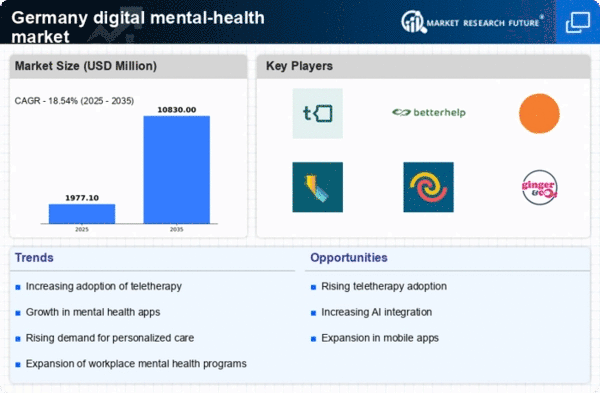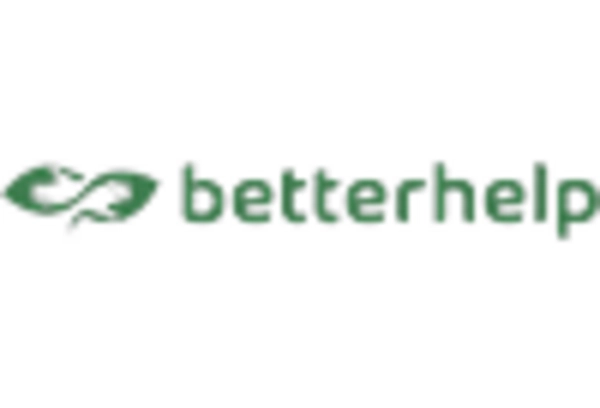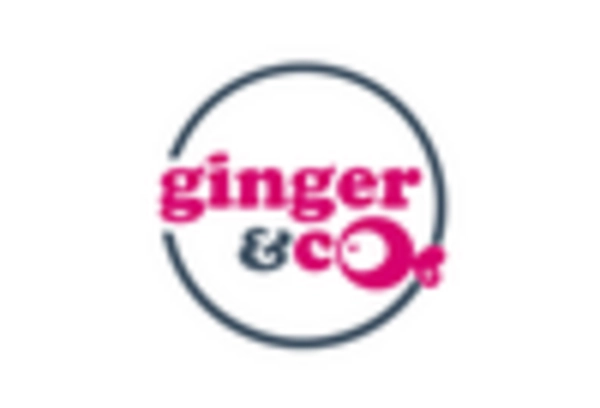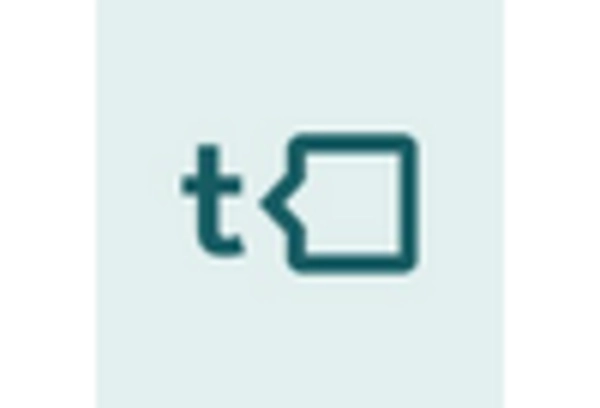Rising Mental Health Awareness
The increasing awareness surrounding mental health issues in Germany is a pivotal driver for the digital mental-health market. As societal stigma diminishes, more individuals are seeking help for mental health conditions. Reports indicate that approximately 30% of the German population acknowledges experiencing mental health challenges, which has led to a surge in demand for accessible mental health solutions. This heightened awareness encourages the adoption of digital platforms that offer therapy, counseling, and self-help resources. Consequently, the digital mental-health market is likely to expand as more people recognize the importance of mental well-being and actively seek out digital interventions to address their needs.
Government Initiatives and Funding
Government initiatives aimed at improving mental health services in Germany significantly influence the digital mental-health market. The German government has allocated substantial funding to enhance mental health care accessibility, particularly through digital means. For instance, the introduction of the Digital Healthcare Act has facilitated the integration of digital health applications into the healthcare system. This legislative support is expected to drive the growth of the digital mental-health market, as it encourages the development and adoption of innovative digital solutions. With an estimated €200 million earmarked for mental health initiatives, the market is poised for substantial growth as these funds are utilized to enhance digital mental health services.
Increased Demand for Personalized Solutions
The growing demand for personalized mental health solutions is a significant driver of the digital mental-health market. Individuals are increasingly seeking tailored approaches to address their unique mental health needs. Digital platforms that offer personalized therapy plans, mood tracking, and self-assessment tools are gaining traction among users in Germany. Research indicates that 65% of users prefer digital solutions that adapt to their specific circumstances, which suggests a shift towards more individualized care. This trend is likely to propel the digital mental-health market forward as providers develop more sophisticated algorithms and user-centric features to meet the diverse needs of the population.
Technological Advancements in Digital Platforms
Technological advancements play a crucial role in shaping the digital mental-health market. Innovations in mobile applications, teletherapy, and online support groups have transformed how mental health services are delivered. In Germany, the proliferation of smartphones and high-speed internet access has facilitated the widespread use of digital mental health solutions. As of 2025, it is estimated that over 70% of the population has access to smartphones, enabling them to engage with mental health resources conveniently. This technological evolution not only enhances user experience but also expands the reach of mental health services, thereby driving growth in the digital mental-health market.
Integration of Digital Health into Traditional Care
The integration of digital health solutions into traditional mental health care systems is emerging as a key driver for the digital mental-health market. In Germany, healthcare providers are increasingly recognizing the value of combining face-to-face therapy with digital tools. This hybrid approach allows for more comprehensive care, enabling patients to access support between sessions. As of November 2025, approximately 40% of mental health professionals report using digital tools in their practice, indicating a shift towards a more integrated model of care. This trend not only enhances patient engagement but also expands the reach of mental health services, thereby fostering growth in the digital mental-health market.
















